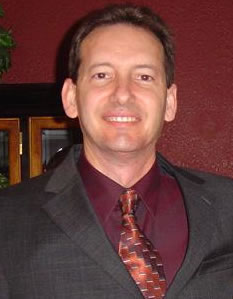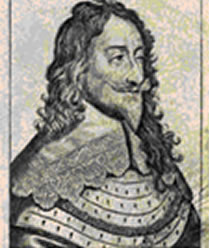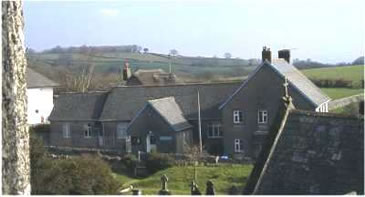De Amerikaanse schrijver R.J. Pineiro werd geboren op 17 april 1961 in Havanna. Zie ook mijn blog van 17 april 2007.
Uit: Havoc
“The yacht slowly cruises beyond the surf for the fourth time in the past hour, pretending to be just another tourist rig enjoying a beautiful day in paradise.
But I know better.
No one knows where I headed following my touchy-feely departure from Langley. At least no one is supposed to know. But there are ways, if one’s really hard-boiled about it.
And that, of course, leads me to another thing I got out of my joyful twenty-five years as a spy: a hell of a fan club—the long list of sleazeballs across three continents who would just love to go to work on me with a blowtorch, superglue, and a pair of gerbils.
The yacht continues on its merry way as if nothing is wrong, .ping my socks in spite of the two cervezas frias I had for breakfast.
Locating field surveillance is the bread and butter of my profession—or perhaps I should say of my former profession, though once a spook always a spook. No one who operated in the field for any length of time can ever forget the ins and outs of not just noticing a tail but also beating it, losing those following you so you can then meet safely with an informant or leave a package for an agent—something called a drop in my past life.
So after decades of situating and defeating all forms of surveillance, you develop this sixth sense, the feeling that you’re being watched even though you physically can’t see the .ing you, waiting for you to make a mistake, trying to use you to find the informant that you’re running to gather intel on.
And that old familiar feeling is now rushing through my alcohol-thinned blood, uncurling the hairs of my ass.”

R.J. Pineiro (Havanna, 17 april 1961)
De Deense schrijfster Karen Blixen (eig. barones von Blixen-Finecke) werd geboren op 17 april 1885 te Rungsted. Zie ook mijn blog van 17 april 2007 en ook mijn blog van 17 april 2008.
Uit: The Ring
“On a summer morning a hundred and fifty years ago a young Danish squire and his wife went out for a walk on their land. They had been married a week. It had not been easy for them to get married, for the wife’s family was higher in rank and wealthier than the husband’s. But the two young people, now twenty-four and nineteen years old, had been set on their purpose for ten years; in the end her haughty parents had had to give in to them. They were wonderfully happy. The stolen meetings and secret, tearful love letters were now things of the past. To God and man they were one; they could walk arm in arm in broad daylight and drive in the same carriage, and they would walk and drive so till the end of their days. Their distant paradise had descended to earth and had proved, surprisingly, to be filled with the things of everyday life: with jesting and railleries, with breakfasts and suppers, with dogs, haymaking and sheep. Sigismund, the young husband, had promised himself that from now there should be no stone in his bride’s
path, nor should any shadow fall across it. Lovisa, the wife, felt that now, every day and for the first time in her young life, she moved and breathed in perfect freedom because she could never have any secret from her husband. To Lovisa—whom her husband called Lise—the rustic atmosphere of her new life was a matter of wonder and delight. Her husband’s fear that the existence he could offer her might not be good enough for her filled her heart with laughter. It was not a long time since she had played with dolls; as now she dressed her own hair, looked over her linen press and arranged her flowers she again lived through an enchanting and cherished experience: one was doing everything gravely and solicitously, and all the time one knew one was playing. It was a lovely July morning. Little woolly clouds drifted high up in the sky, the air was full of sweet scents. Lise had on a white muslin frock and a large Italian straw hat. She and her husband took a path through the park; it wound on across the meadows, between small groves and groups of trees, to the sheep field.“

Karen Blixen (17 april 1885 – 7 september 1962)
De Duitse schrijver Rolf Kalmuczak werd geboren in Nordhausen op 17 april 1938. Zie ook mijn blog van 17 april 2007
Uit: Tims gefährlichster Gegner
„Tim heißt eigentlich Peter Carsten. Aber tolle Typen haben auch immer einen Spitznamen. Früher wurde Tim von seinen Freunden Tarzan genannt, doch mit dem will er nicht mehr verglichen werden, nachdem er diesen “halb fertigen Bodybuilder” in einem Film gesehen hat.- Tim ist der Anführer der TKKG-Bande, die so bezeichnet wird nach den Anfangsbuchstaben ihrer Vor- oder Spitznamen. Tim ist 14, aber seinem Alter geistig und körperlich weit voraus. Ein braun gebrannter Athlet, besonders veranlagt für Kampfsport und Volleyball. Seit zwei Jahren wohnt er in der berühmten Internatsschule, ist Schüler der 9b. Sein Vater, ein Ingenieur, kam bei einem Unfall ums Leben. Tims Mutter, eine Buchhalterin, müht sich sehr, um das teure Schulgeld für ihren Sohn aufzubringen. Tim ist der geborene Abenteurer, hasst Ungerechtigkeit, mischt sich ein und riskiert immer wieder Kopf und Kragen.
KARL, DER COMPUTER sitzt im Unterricht neben Tim, wohnt aber nicht im Internat, sondern bei seinen Eltern in der nahen Großstadt. Karl Viersteins Vater ist Professor für Mathe und Physik an der Universität; und wahrscheinlich von ihm hat Karl das tolle Gedächtnis geerbt – aus dem man alles abrufen kann wie aus einem Computer. Karl ist lang aufgeschossen und sieht magersüchtig aus, weshalb körperlicher Einsatz nicht seine Sache ist.“

Rolf Kalmuczak (17 april 1938 – 10 maart 2007)
De Duitse dichter en schrijver Karl Friedrich Henckell werd geboren op 17 april 1864 in Hannover. Zie ook mijn blog van 17 april 2009.
Alte Heimat
Fuhr ich jüngst durch Hannoverland,
Wo das Heim meiner Väter stand.
Grüne Saatfelder, Halme, Gräser
Säumten strichweis die stille Weser,
Buchenwälder warfen Licht
Über der Talflur ernst Gesicht.
Wie der Dampfer so ruhig ging
Und die Seele der Zeit nachhing,
Schien das Leben mir wie ein Traum,
Ob es meines war, wußt’ ich kaum.
Sturm und Strudel, ringend durchmessen,
Schier verbrandet und wie vergessen,
Aber aus tiefstem Herzensgrund
Schloß sich Frieden und Kampf zum Bund:
»War’s nicht leidenschaftliches Lieben,
Was dumpfgrollend dich fortgetrieben?
Was durch Bitternisse dich trug,
War’s nicht glühender Herzenszug?
Mußtest mächtigen Götzen fluchen,
Deines Wesens Heimat zu suchen,
Was ihr Bild verzerrt und entstellt,
Hast du zerschlagen und zerschellt.
Der du zahltest mit eigenem Blute,
War dir jemals treulos zumute?
Hieltest zäh deiner Art die Treu,
Trägst drum nimmer der Jugend Reu.«
So die Seele der Zeit nachhing,
Wie der Dampfer ruhig ging.
Über der Talflur ernst Gesicht
Warfen Buchenwälder ihr Licht.
Strichweis säumten Halme, Gräser,
Grüne Saaten die stille Weser,
Wo das Heim meiner Väter stand,
Fuhr ich jüngst durch Hannoverland.

Karl Henckell (17 april 1864 – 30 juli 1929)
De Welshe dichter en arts Henry Vaughan werd geboren in Newton (Breconshire) op 17 april 1622. Zie ook mijn blog van 17 april 2009.
Silence and Stealth of Days
Silence, and stealth of days! ’tis now
Since thou art gone,
Twelve hundred hours, and not a brow
But clouds hang on.
As he that in some cave’s thick damp
Lockt from the light,
Fixeth a solitary lamp,
To brave the night,
And walking from his sun, when past
That glim’ring ray
Cuts through the heavy mists in haste
Back to his day,
So o’r fled minutes I retreat
Unto that hour
Which show’d thee last, but did defeat
Thy light, and power,
I search, and rack my soul to see
Those beams again,
But nothing but the snuff to me
Appeareth plain;
That dark and dead sleeps in its known
And common urn,
But those fled to their Maker’s throne
There shine and burn;
O could I track them! but souls must
Track one the other,
And now the spirit, not the dust,
Must be thy brother.
Yet I have one Pearl by whose light
All things I see,
And in the heart of earth and night
Find heaven and thee.

Henry Vaughan (17 april 1622 – 28 april 1695)
De Engelse dichter en toneelschrijver John Ford werd geboren in Ilsington, Devon, op 17 april 1586. Zie ook mijn blog van 17 april 2009.
A BRIDAL SONG
COMFORTS lasting, loves increasing,
Like soft hours never ceasing;
Plenty’s pleasure, peace complying,
Without jars, or tongues envying;
Hearts by holy union wedded,
More than theirs by custom bedded;
Fruitful issues; life so graced,
Not by age to be defaced;
Budding as the year ensu’th,
Every spring another youth:
All what thought can add beside,
Crown this Bridegroom and this Bride!

John Ford (17 april 1586 – 1639 of 1640)
Ilsington (Geen portret beschikbaar)
